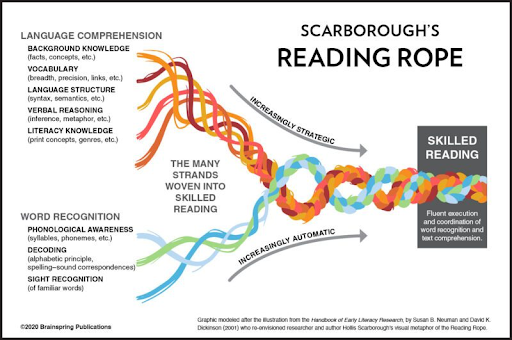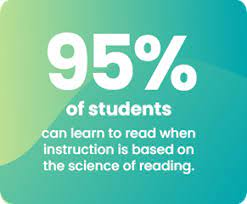Science of Reading
The Science of Reading is a body of scientifically based research about reading and issues related to reading and writing that has been conducted over the last five decades across the world from thousands of studies in multiple languages. This body of evidence tells us how skilled reading and writing develop, why some students have difficulty learning to read, and how we can teach, assess, and improve students' outcomes. From this research there are five critical pillars of reading:
Phonemic Awareness - Identifying and manipulating spoken sounds
Phonics - Understanding how letters/groups of letters create sound relationships and spelling patterns
Fluency - Reading words, phrases, sentences, stories, etc. accurately and with adequate speed and expression.
Vocabulary - Knowing the meaning of words and how to use them correctly in context
Comprehension - Understanding what you read
What the Science of Reading is Not…
A Program
A Philosophy
Something People “Do”
Click here for Ohio’s Science of Reading FAQ page.
The Simple View of Reading

This model has been cited over 650 times in research literature and over 150 scientific studies to validate this model. It is the cornerstone of Ohio’s Plan to Raise Literacy Achievement.
Click here to go to the webpage of Ohio’s Plan to Raise Literacy Achievement which differentiates for the areas of Emergent Literacy, Early and Conventional Literacy, and Adolescent Literacy.
Scarborough's Reading Rope

Scarborough's Rope captures the complexity of learning to read. Scarborough's Reading Rope is made up of lower and upper strands. When all these component parts intertwine it results in skilled and accurate, fluent reading with strong comprehension.
Structured Literacy
Structured literacy approaches emphasize highly explicit and systematic teaching of all important components of literacy. These components include both foundational skills (e.g., decoding, spelling) and higher-level literacy skills (e.g., reading comprehension, written expression). Structured Literacy also emphasizes oral language abilities essential to literacy development, including phonemic awareness, sensitivity to speech sounds in oral language, and the ability to manipulate those sounds. It is not one particular program or curriculum.

